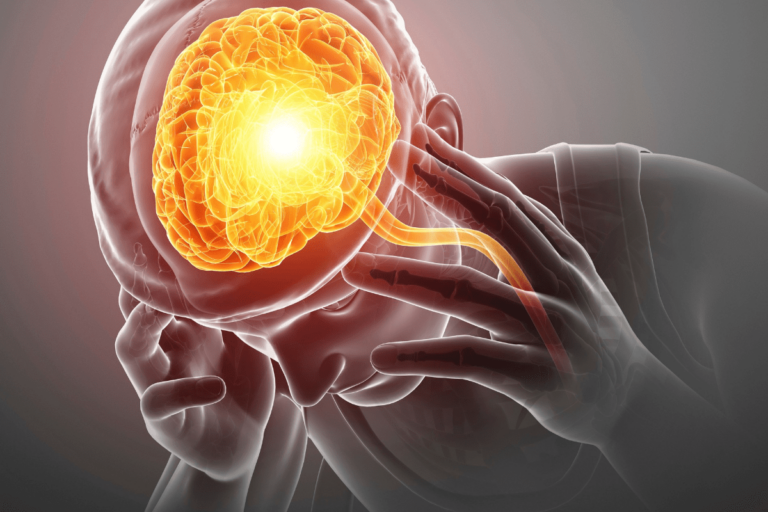You won’t find an entry for “pure OCD” in the fifth edition of the Diagnostic and Statistical Manual of Mental Disorders (DSM-5) – but you can find many articles about it online. What is pure OCD? Is it a real diagnosis, an Internet myth, or something in between?
If you or a loved one are struggling with Obsessive-Compulsive Disorder, call us today at (629) 217-0164 or verify your insurance.
What Is OCD?
To answer the question in today’s headline (What is pure OCD?), it can be helpful to first take a moment to quickly review what “regular” OCD is.
OCD stands for obsessive-compulsive disorder. As the full name of this condition indicates, people who have OCD may be affected by two types of symptoms: obsessions and compulsions.
Obsessions are recurring, intrusive thoughts that cause considerable emotional distress. Examples of obsessions that a person with OCD might experience include:
- Intense worries about being contaminated
- Anxiety if items are not arranged in a particular order
- Fear of accidentally shouting out something that’s obscene or otherwise inappropriate
- Unwanted sexual, blasphemous, or otherwise upsetting mental images
- Fear of intentionally harming others (such as by swerving their car into a crowd of people)
- Concern that they forgot to lock a door or turn off an item, which could result in their house being burglarized or burned down
Compulsions are repetitive behaviors that a person feels forced to engage in. Examples of compulsive behaviors that may be symptomatic of OCD include:
- Washing their hands, brushing their teeth, or showering an excessive number of times every day
- Needing to touch certain objects in a certain order before they can enter or leave a room
- Having to check and re-check (and re-check again) to ensure that they have turned off their stove, locked a door, or completed some other household safety task
- Arranging objects in a rigidly prescribed order, such as making sure that items are always facing in a certain direction or organized by height
- Quietly counting or repeating a phrase over and over again
What Is Pure OCD?
Now that we’ve gone over the general characteristics of OCD, let’s turn our attention toward today’s topic. What is pure OCD?
Sometimes also referred to as “purely obsessive OCD” or “pure O,” pure OCD describes a version of obsessive-compulsive disorder that does not involve any outward behavioral signs or observable physical compulsions.
The lack of easily noticeable behavioral compulsions has led some sources to describe pure OCD as a form of the disorder that only involves obsessive thoughts. However, other sources believe this to be an errant description, noting that someone with pure OCD can absolutely have compulsions – but these compulsions will not involve the rituals or repetitive actions that are commonly associated with OCD.
This topic was addressed in a 2011 study in the open access, peer-reviewed journal Depression and Anxiety. While the title of this study (The Myth of the Pure Obsessional Type in Obsessive-Compulsive Disorder) suggests that it rejects the existence of pure OCD, that would not be an accurate description of the research.
The team that conducted this study determined that people who have what some called purely obsessional OCD have compulsions that are not easily recognizable. In fact, patients themselves may not even realize that they are being affected by both obsessions and compulsions.
Examples of pure OCD compulsions can include:
- Mental rituals such as repeating certain words, compulsively reviewing prior events, or thinking certain thoughts in order to “undo” previous intrusive thoughts
- Persistently seeking reassurance, which can include engaging in extensive mental processes to “justify” a behavior or convince themselves that they are not a bad person. Some people with pure OCD may also talk to others or use online searches to seek reassurance.
- Avoiding certain locations or circumstances that are related to an obsessive thought or belief.
Ongoing confusion about the nature of pure OCD has caused some experts to advise against using that descriptor. For example, the British charity OCD UK has described pure OCD as an “unhelpful and imprecise” term that could prevent someone with OCD from acknowledging their symptoms and getting the help they need.
How is Pure OCD Treated?
Pure OCD is typically treated with a combination of medication and therapy.
The specific medications and therapies that are best for each patient can vary depending on a host of personal factors, including which symptoms they have been experiencing, what level of distress these symptoms have caused, and if they have any co-occurring mental health disorders or addictions.
The International OCD Foundation has reported that a type of mental health medications called a selective serotonin reuptake inhibitor (SSRI) can be an effective first-line medication for people who have OCD. Examples of commonly prescribed SSRIs include Prozac (fluoxetine), Paxil (paroxetine), and Lexapro (escitalopram).
From a therapeutic perspective, cognitive behavioral therapy (CBT) and exposure and response prevention (ERP) have both proved to be effective at helping people manage their OCD symptoms more effectively. Research suggests that services such as Alpha-Stim and ketamine therapy may also be beneficial for people who have pure OCD.
As is the case with most mental health concerns, there is no single course of treatment that is ideal for everyone who has pure OCD. When you are seeking care, you should focus your attention on finding a provider who can assess the full scope of your needs, then develop an individualized plan just for you.
Find Treatment for Pure OCD in Nashville
If you have been experiencing the symptoms of pure OCD, Arbor Wellness is here to help.
Your options at our OCD treatment center in Nashville, Tennessee, include residential care, a partial hospitalization program, and an intensive outpatient program.
In each of these programs, you can expect to receive customized services and close personal support from a team of experienced professionals. We understand how pure OCD can undermine your ability to enjoy a full and satisfying life, and we are committed to providing the focused solutions that can help you achieve a much healthier and more hopeful future.
To learn more or to schedule a free assessment, please visit our Admissions page or call us today.


















